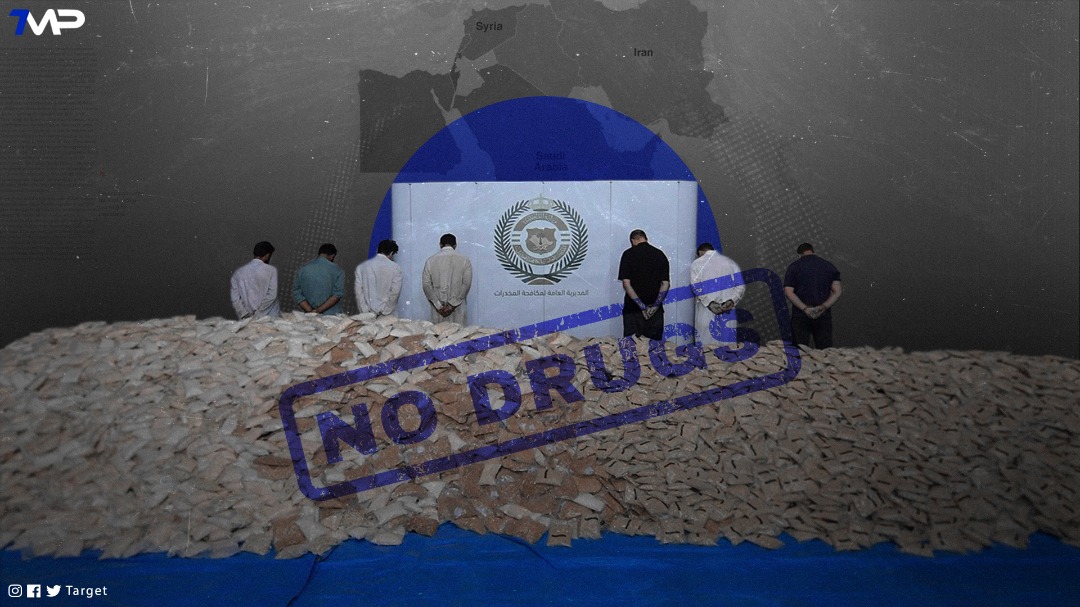Saudi Arabia has become the main destination for smugglers from Syria and Lebanon, and has turned into the Middle East’s drug capital. This is how CNN recently described the bad conditions in several Gulf countries as a result of large drug smuggling operations, perpetrated by pro-Iranian groups in Syria as well as the Lebanese Hezbollah stating that Saudi Arabia is one of the largest and most profitable regional destinations for narcotics.
Escalating challenges
A few days ago, the General Directorate of Narcotics Control in Saudi Arabia announced that it had thwarted the attempted smuggling of a huge amount of drugs into its soil by arresting eight people who were involved in smuggling and were identified as Syrian and Pakistani nationals. In fact, the amount of narcotic substances amounted to about 47 million amphetamine tablets, hidden inside a flour shipment which was seized through a land port that transports merchandises through trains and trucks to the capital, Riyadh, which was re-peated during the last period significantly, prompting the Jordanian King Ab-dullah II, to warn from a possible military escalation on the border strip with Syria, talking about the challenges facing Jordan, represented by the smuggling of drugs and weapons by Iranian groups present inside Syrian territory, whose activity has increased due to the decline in Russia’s influence after its preoccu-pation with the Ukrainian war. Amman previously explicitly accused the Leba-nese Hezbollah Standing behind the drug smuggling attempts to its territory and then to a number of Gulf countries.
Imposing a new reality
In an interview with Al-Hurra, the Saudi analyst, Mubarak Al-Ati, directed di-rect accusations against the Fourth Division of the Damascus government forc-es, which is considered the pro-Iranian military wing in southern Syria, along with the Lebanese Hezbollah, for sponsoring the cultivation of weed and its ex-port abroad, indicating that all these parties target Saudi Arabia and that the seized quantities, especially the last shipment, confirm that there is an ongoing war, while explaining at the same time that Riyadh has taken firm steps to con-front this fierce war by strengthening the specialized security services, modern-izing them, and training human crews.
Informed sources stated that the drug trade and its manufacture have become a major resource and the most important source of income for Iran and the Da-mascus government in light of the sanctions imposed on the two countries. Therefore, it is necessary to work to dry up the sources of these illegal opera-tions, and not only thwart them, as they have become a major front in drug smuggling and many types of ammunition through the use of modern tech-niques such as drones and tunnel digging, which was confirmed by United Na-tions drug experts, saying: Syria which has been witnessing a war for years, has become the main production site in the region for drugs destined for Jordan, Iraq, the Gulf, as well as Europe, which requires a broad alliance and high-level coordination between the Gulf states and Jordan in particular by imposing a new reality that must be dealt with.
Analysts believe that the best way to end this dilemma is based on the exist-ence of an international resolution that deters Iran and the Lebanese Hezbollah, in addition to Jordan’s reliance on the military option to protect the borders, away from making contacts with the Syrian side, which will not benefit Am-man with anything, especially with the weakness of the Damascus government and Hezbollah’s control. and Iranian groups in a large part of southern Syria.

